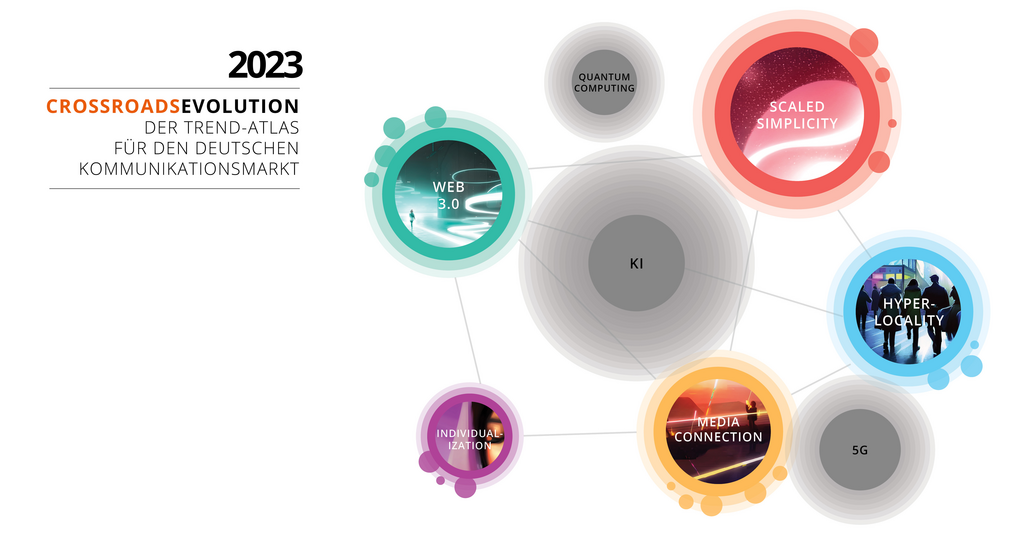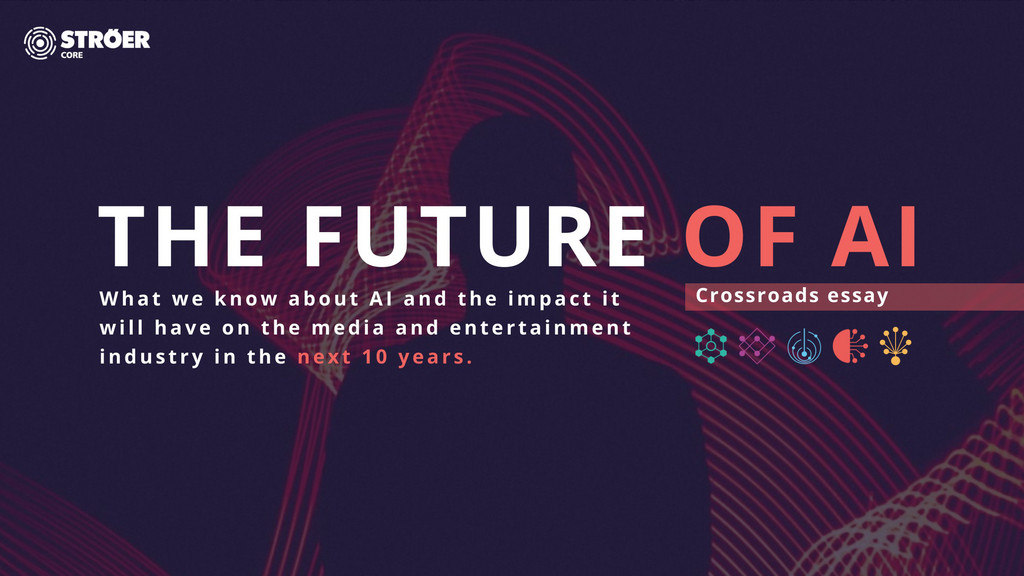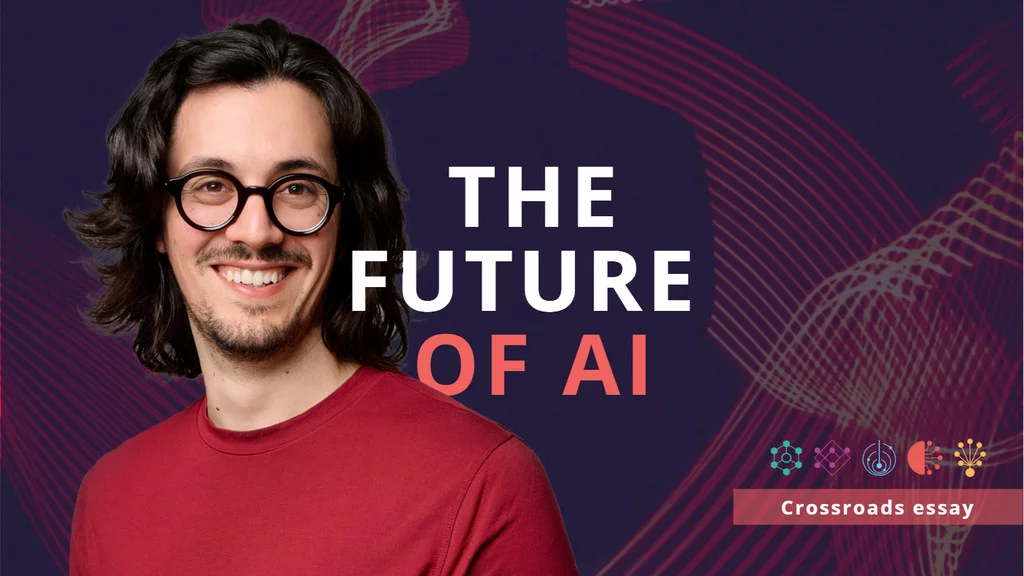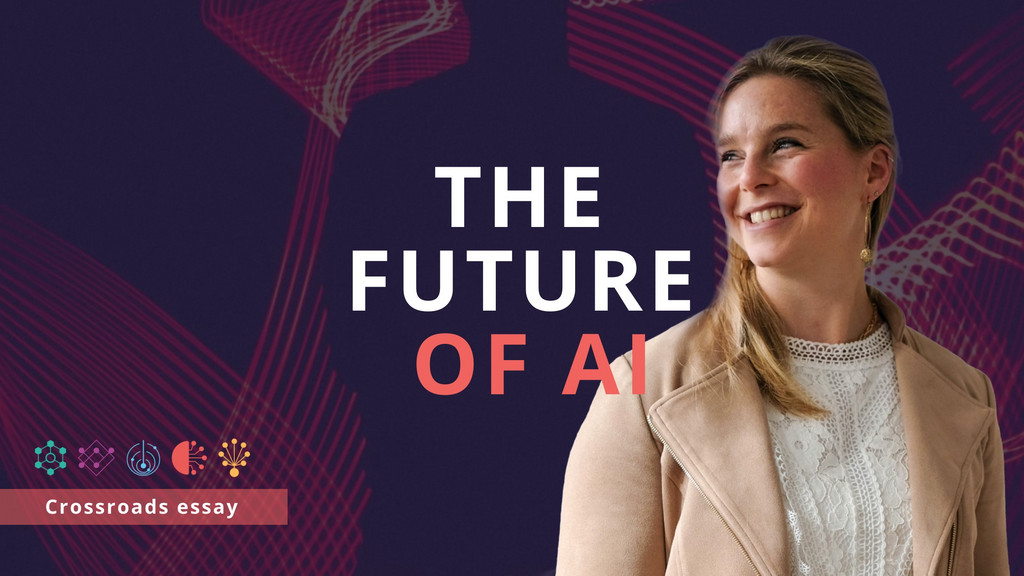
03. July 2024
AI Outlook for the next 10 years with Alois Krtil, CEO of ARIC
We recently published our Crossroads essay "The Future of AI". What we know about AI and what impact it will have on the German media and communications market in the next 10 years. With our accompanying blog series, we would like to provide you with in-depth insights from external experts and continue the series with a contribution from Alois Krtil (founder and CEO of the Artificial Intelligence Center Hamburg).
Alois Krtil is the founder and CEO of the Artificial Intelligence Center Hamburg (ARIC). Under his leadership, ARIC has developed into a key institution that unites over 650 industry members, 200 scientists, and 100 international cooperation partners. ARIC plays an important role in promoting and applying AI across various sectors, from startups to small and medium-sized enterprises (SMEs) to large corporations in the Hamburg metropolitan region. Alois is also active as a technology and AI expert, advising the German government, serving on the advisory board for quantum computing of the DLR, acting as CTO at Pinktum, and participating in various committees and boards.

What is the current status quo of Generative AI in your view, and why?
On a scale of 1-100, we are approximately at 30 – so we are still quite early in the development. This year, we will see many advancements in the quality of various models and approaches. Sora, the text-to-video application from OpenAI, for example, made a big impact in April and is being further developed intensively.
Essentially, the topic of text-to-video is already a few months old, and we consciously say "old" here because I see a similar development as with the initial text-to-image models like Midjourney & Co: Initially, there were many representation errors in the diffusion models, but they improved significantly in very short intervals. Generative AI is still in its infancy, and currently, there is intensive work being done on improving the quality, robustness, and governance of multimodal models.
Regarding human adoption and acceptance, it must be considered that technology development progresses in saturation phases. We will adapt to the leaps in development and new technologies increasingly quickly.
What are the limitations of Generative AI? What would a 100% fully developed form of Generative AI look like to you?
Generative AI has various limitations, including technical, ethical, and regulatory. Technically, Generative AI models are still limited by their training data and underlying algorithms. Therefore, there are difficulties in accurately capturing complex human emotions or cultural nuances. Ethical boundaries relate to issues of privacy, bias, and accountability. In a 100% fully developed form, Generative AI could understand and respond to complex human interactions and needs with great precision while respecting ethical principles and privacy regulations. It would also be able to continuously improve itself to keep pace with the ever-changing human dynamics.
The boundary is often drawn in comparison to human abilities. Generative AI can already produce high-quality results in music, video, image, and text. In many cases, especially in text and image applications, the quality has already reached the level of human experts. In the next 12 to 24 months, there will be further leaps and new approaches in this area, as seen with the recent release of ChatGPT-4. For me, a 100% fully developed form of generative AI would be one where human creativity and ingenuity are matched or even surpassed in all areas. When it becomes indistinguishable whether a work (be it text, video, or music) is created by a human or a machine.

Will the EU AI Act have significant impacts on the development of Generative AI applications in Germany?
Regulations are not inherently bad. However, they should be well-crafted to avoid stifling innovation. Necessary guidelines, similar to traffic rules, are sensible. The EU AI Act could definitely have significant impacts on the development of Generative AI applications in Germany. The Act aims to ensure coherent and responsible regulation of AI technologies within the European Union. This could have both positive and negative effects, depending on how the rules are formulated and how they need to be implemented by companies and research institutions. But if regulation acts as a brake on innovation, then it is not well-crafted.
In terms of elections and election influence by AI bots, guidelines are very important. Of course, the regulation behind it must be right, meaning it should not be designed in such a way that it disadvantages smaller companies or is impractical. If Europe does it right, it could become a role model for the world. We are not the only ones regulating AI; similar movements are happening in Canada, the USA, and Asia. Well-implemented regulation could even be considered a seal of quality.
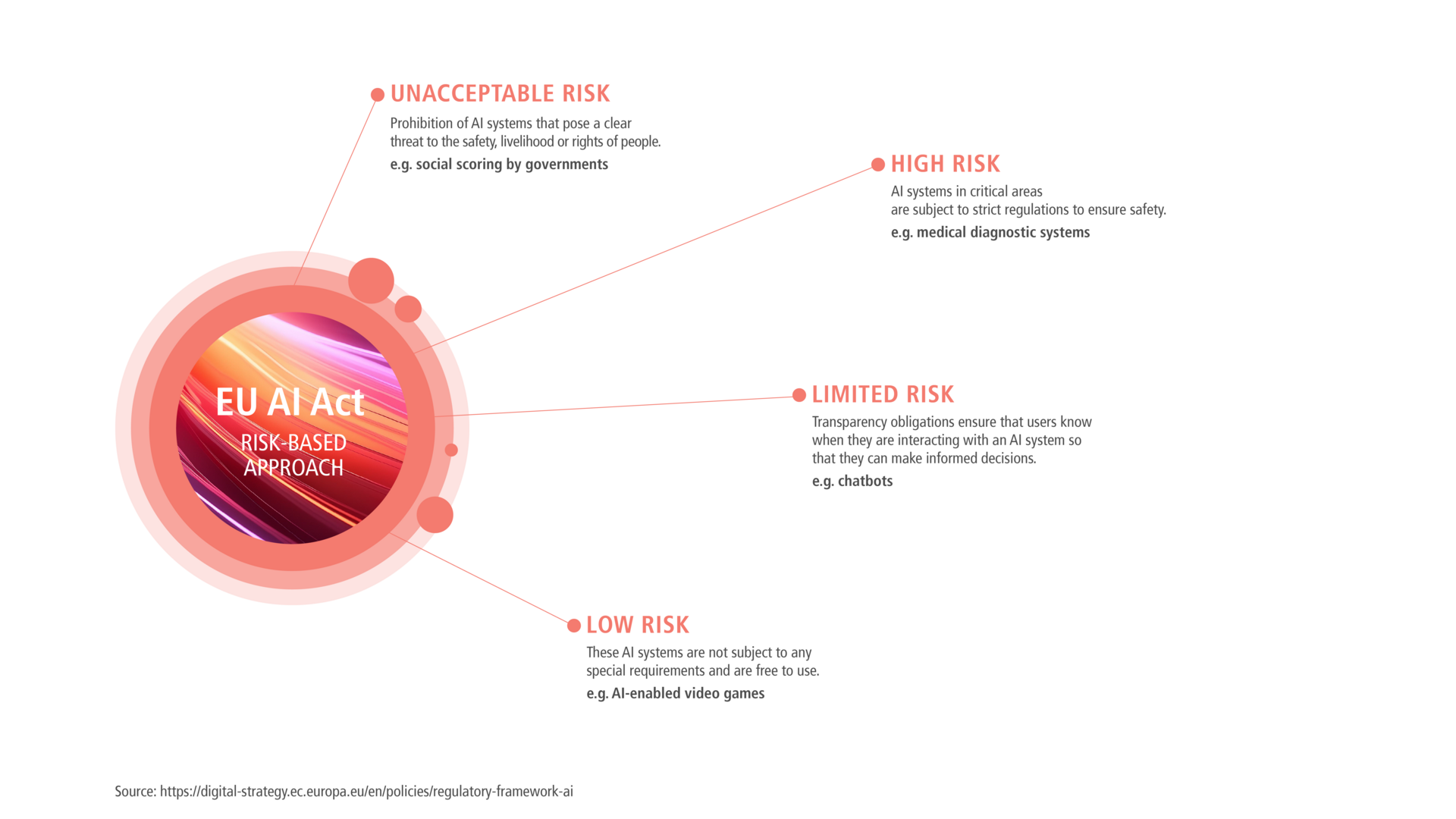

What would be your personal wish or ideal world, and what role does Generative AI play in it?
In the short and medium term, I envision a world where many AI tools and systems support people as co-pilots. They are deeply integrated into our everyday lives, taking tasks off our hands and making us more efficient and faster. In the long term, the ideal world would be one where AI applications free us from tedious routine tasks and help us solve complex problems efficiently. At the same time, humans remain the ultimate decision-makers and curators of AI-generated content and ideas.



